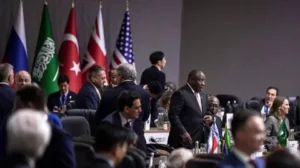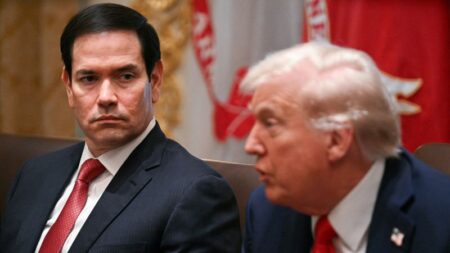The political landscape in the United Kingdom has recently been shaken by the shocking revelations involving Nathan Gill, the former leader of Reform UK in Wales. Zia Yusuf, the current head of policy for Reform UK, has publicly declared that Gill’s scandal is “ancient history,” referring to Gill’s activities that led to his conviction for accepting bribes in exchange for pro-Russian interviews and speeches. Gill was sentenced to ten and a half years in prison on November 21, after admitting to receiving approximately £40,000 as a bribe.
Yusuf stated that he had no personal acquaintance with Gill and that all he knew of him was derived from media reports. He characterized Gill’s actions as reprehensible but emphasized that such actions should not tarnish the reputation of Reform UK or its leadership. The scandal has surfaced amidst broader discussions about political accountability, especially in light of challenging statements from political opponents. For instance, Prime Minister Keir Starmer has called upon Nigel Farage, the long-standing leader of Reform UK, to initiate an investigation into the party’s alleged connections to Russia.
The fallout from Gill’s actions has drawn attention not only to his individual misdeeds but also to the integrity of reform UK’s broader narrative concerning foreign influence and political corruption. During a recent interview on Sky News, Yusuf was confronted with queries regarding public trust in Reform UK’s stance on Russia, especially in light of the evidence suggesting one of its members had taken money from Russian sources. Yusuf countered this by arguing that it was unreasonable to distrust Reform UK based solely on Gill’s past.
He labeled Gill’s behavior as “treasonous” and firmly rejected any implications that Gill’s actions could reflect poorly on the party’s growing membership or its leadership, including Farage. Gill, at 52 years of age and originally hailing from Llangefni, Anglesey, had served as a Member of the European Parliament (MEP) and had been implicated in aiding pro-Russian politicians in Ukraine. His actions were particularly troubling given that Oleg Voloshyn, one of the individuals from whom he accepted bribes, was identified by the US government as having connections to Russian intelligence services.
Judge Mrs. Justice Cheema-Grubb underscored the seriousness of Gill’s offenses, noting that he betrayed the public’s trust and undermined democratic principles. Gill’s connections to influential parties within the UK, including his prior membership in the UK Independence Party and his close association with Farage within Reform UK, seemed to indicate a more extensive web of political implications.
In the wake of Gill’s sentencing, the political discourse has intensified. Starmer’s call for investigation has garnered responses from various political figures, including Liz Saville Roberts of Plaid Cymru, who expressed dismay at Yusuf’s “ancient history” remark, claiming it was a facetious attempt to deny the ongoing political ramifications of Gill’s actions. Roberts emphasized that Gill’s contributions to the party were significant and should not be dismissed lightly, calling for accountability both within Reform UK and across the political spectrum regarding potential foreign influence.
Liberal Democrat leader, Sir Ed Davey, has also echoed concerns about political integrity. He reminded the public of Farage’s historical ties to Russian media and questioned the overall loyalties of individuals within Reform UK. In a time when political transparency is increasingly demanded by voters, the controversy surrounding Gill accentuates the urgency for comprehensive investigations into foreign interference in UK politics.
As the political scene evolves, it will be imperative for parties to address such controversies transparently and responsively to maintain the public’s trust in democratic institutions. The trajectory of Reform UK and its leaders will likely face continued scrutiny as discussions persist about the implications of Gill’s actions and the broader context of foreign influence in domestic politics.











